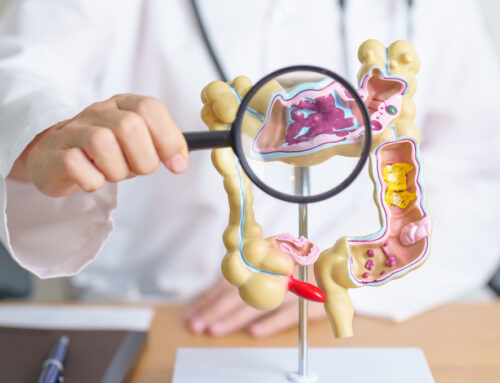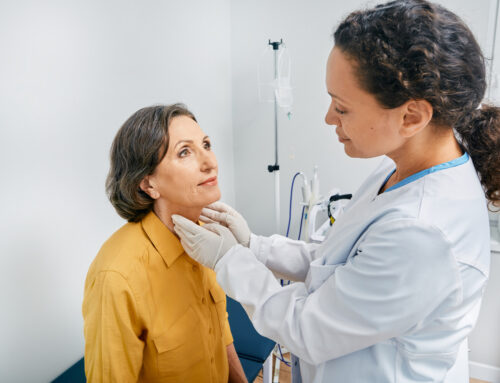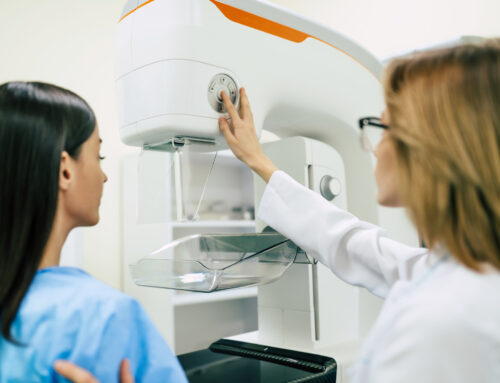
Menopause is a universal experience that most women share. Despite the fact that it will most likely occur at some point in each woman’s life, there are many differences across menopause symptoms and when the process begins. What is menopause? When does menopause start? What are the early signs of menopause? Read on to learn the right answers to these questions.
What Is Menopause?
Menopause is a transitional period between menstruation and no longer menstruating. Menopause starts when it has been one year or 365 days since a woman’s last period. The term perimenopause refers to the time before menopause begins. Perimenopause may include many traditional menopause symptoms, like hot flashes, insomnia, or more.
Natural menopause occurs without medical intervention and can begin without any signs or symptoms leading up to it or after four years or more of experiencing early signs of menopause. On another hand, surgical menopause can also happen if you have surgery that removes the ovaries or a hysterectomy. Unlike natural menopause that can develop over years, surgical menopause happens instantly and can lead to sudden, immediate symptoms.
When Menopause Typically Starts
Menopause occurs in three stages: perimenopause, menopause, and post menopause. Perimenopause is when you first notice the early signs of menopause like hot flashes, insomnia, mood swings, vaginal dryness, and others. These symptoms occur due to hormonal fluctuations in your body as you start to produce less estrogen, and the average duration of perimenopause is four years.
Now, when does menopause start? Natural menopause is the next phase, which happens between the ages of 40 and 58 for most women. Depending on your body and a variety of other health factor, menopause could occur as early as in your 30s or as late as in your 60s. Family history is an great indicator of when the process starts and stops.
Contrastingly, induced menopause can happen at any age, depending on the circumstances that led to it. When the ovaries are surgically removed or damaged through chemotherapy or radiation, you can enter menopause overnight.
Finally, post menopause describes the period 366 or more days after you last menstruated. Some women will continue to experience menopause symptoms for years or the rest of their lives. In general, symptoms start to ease and improve in the months and years immediately following menopause.
The Most Common Menopause Symptoms
Understanding the early signs of menopause and perimenopause can ensure that you seek medical care as quickly as possible and get the support that you need. If you are experiencing symptoms, you may be asking yourself if it’s menopause or if your issues related to another condition. Some of the most common menopause symptoms include:
- Fatigue
- Low libido
- Trouble sleeping
- Breast tenderness
- Irregular periods or spotting in between periods
- Hot flashes
- Night sweats
- Loss of bladder control when laughing or exercising
- Hair thinning
- Dry skin, mouth, or eyes
- Muscle and joint pain
When you visit a TopLine MD Alliance affiliated doctor, they will be able to confirm if you are experiencing menopausal symptoms. Symptoms of perimenopause can mimic signs of blood clotting disorders, hormone imbalances, pregnancy fibroids, or cancer in rare cases, so your dedicated doctor can also identify if you are expecting menopause or a different illness or disorder.
Your doctor can also connect you with a variety of menopause treatments that can ease and improve your symptoms and make you more comfortable throughout perimenopause. Healthcare professionals can also answer any questions that you might have about how menopause will look for you, like “What is menopause?” or “When does menopause start?”
Are There Menopause Symptoms That Will Continue After Menopause?
Unfortunately, some menopause symptoms often continue through post menopause. Some of those issues can become more concerning after menopause. Lower estrogen levels can cause bone loss in women, which increases the likelihood of a broken bone if you fall or have an accident.
Menopause also increases the risk of cardiovascular diseases. Once you go through menopause, your risk of experiencing a stroke or heart attack rises. Maintaining a healthy lifestyle can help reduce the possibility of heart issues, and your doctor can assist with cardiovascular testing to ensure you are as healthy as possible.
The sex-related symptoms that begin during perimenopause may also continue. Many women experience a decreased sex drive or pain and discomfort during sex due to vaginal dryness. There are prescription and over-the-counter products that can help with these intimacy-related symptoms.
How Long the Menopausal Process Lasts
Perimenopause and post menopause vary from woman to woman based on a broad range of factors. Some of the things that are known to influence a woman’s experience with the menopausal process include:
- Weight
- Overall health
- Family health history (Particularly when other female family members have been through the process)
- Genetics
- Lifestyle
- Stress levels
Your doctor can speak with you about what to expect and whether or not your symptoms are aligned with what’s normal.
Treatments to Help Ease Symptoms
Doctors have access to many different treatments and medications that help to ease the perimenopause and post menopause processes. Some of the treatments that have been successful for women in the past include:
- Progesterone injections to help alleviate hormonal symptoms
- Birth control patches to prevent unwanted pregnancy
- Vaginal lubricants to reduce discomfort
- Low-dose birth control pills
- Lifestyle changes, like drinking less alcohol, getting eight hours of sleep every night, and regularly exercising
- Hormone replacement therapy, which will help reduce or remove hormone-related perimenopause and post menopause symptoms
- Calcium supplements to reduce bone loss
Is Hormone Therapy Right for You?
Hormone replacement therapy (HRT) is a process that reintroduces progestogen and estrogen back into the body – hormones that are impacted during the menopausal process and the reason that many symptoms may occur. HRT is not suitable for every woman, but if your doctor determines that you are a good candidate, it can help relieve moderate to severe symptoms. Some of the risk factors to consider before starting hormone therapy are:
- Undiagnosed postmenopausal vaginal bleeding
- History of breast cancer or uterine cancer
- History of strokes or heart attacks
- History of blood clots
- History of liver disease or heart disease
HRT can also lead to an increased risk of breast cancer, so those with a family history of the disease should speak to their medical care team before exploring it as an option. Your doctor can assess your physical health and determine whether or not you are a good fit for hormone replacement therapy. If they recommend that you not pursue this type of treatment, there are other methods for you to get some relief from menopause symptoms.
Do You Need Support Throughout Perimenopause? TopLine MD Can Help!
Experiencing perimenopause, menopause, and post menopause can be stressful and uncomfortable. Having the right support from medical professionals can make all of the difference. TopLine MD is an alliance of trustworthy, knowledgeable, and trained medical professionals who know how to support a woman’s health needs.
If you’re looking for the right doctor to support your health and well-being, Find a Provider to help you locate someone near you. If you’re ready to feel the support that you deserve, our healthcare professionals are here to provide it.
The TopLine MD Alliance is an association of independent physicians and medical practice groups who are committed to providing a higher standard of healthcare services. The members of the TopLine MD Alliance have no legal or financial relationship with one another. The TopLine MD Alliance brand has no formal corporate, financial or legal ties to any of the affiliated physicians or practice groups.



